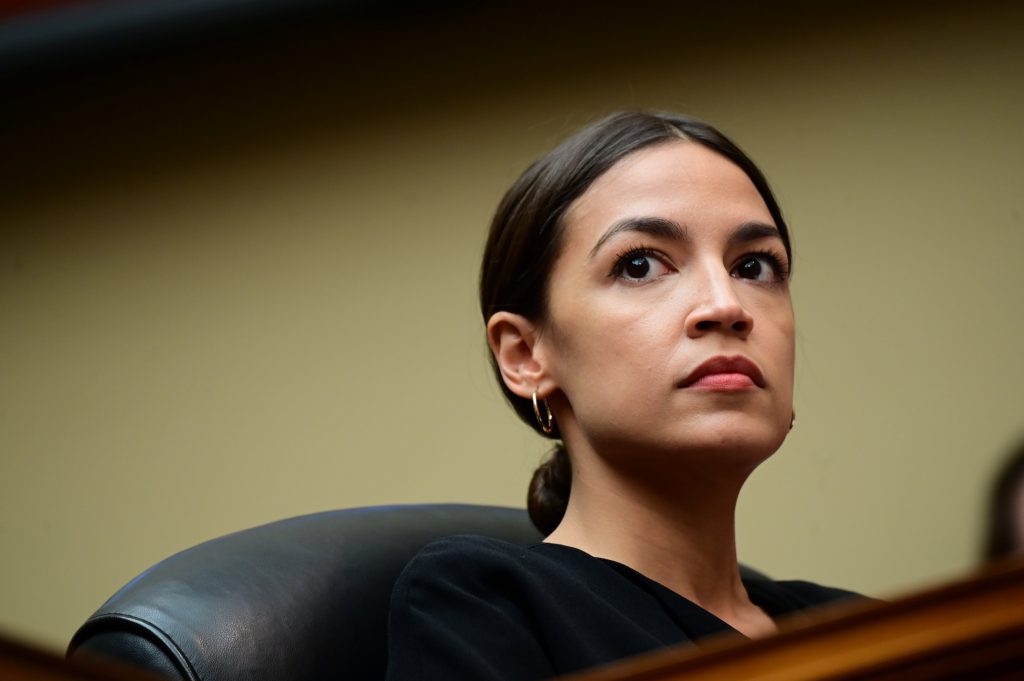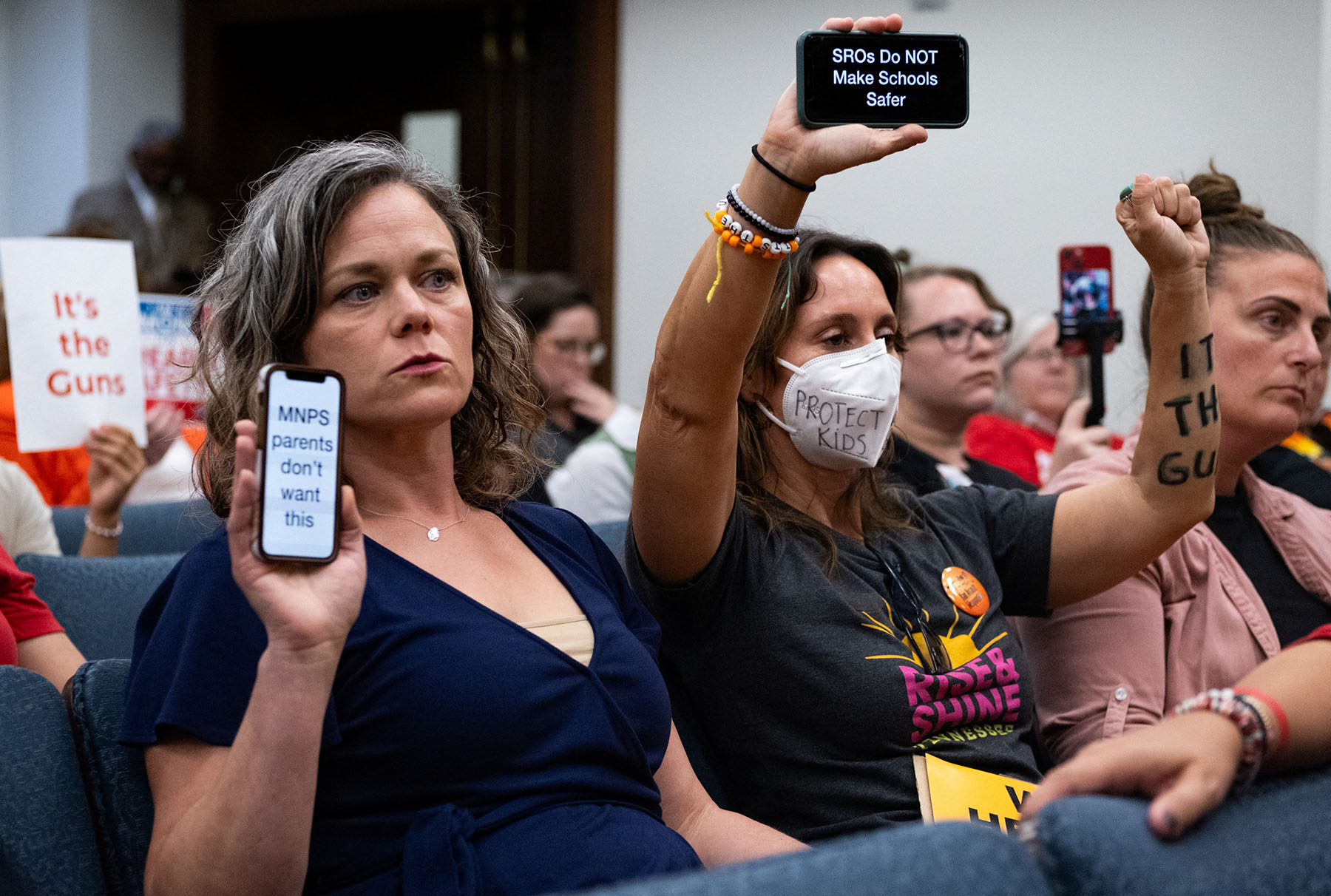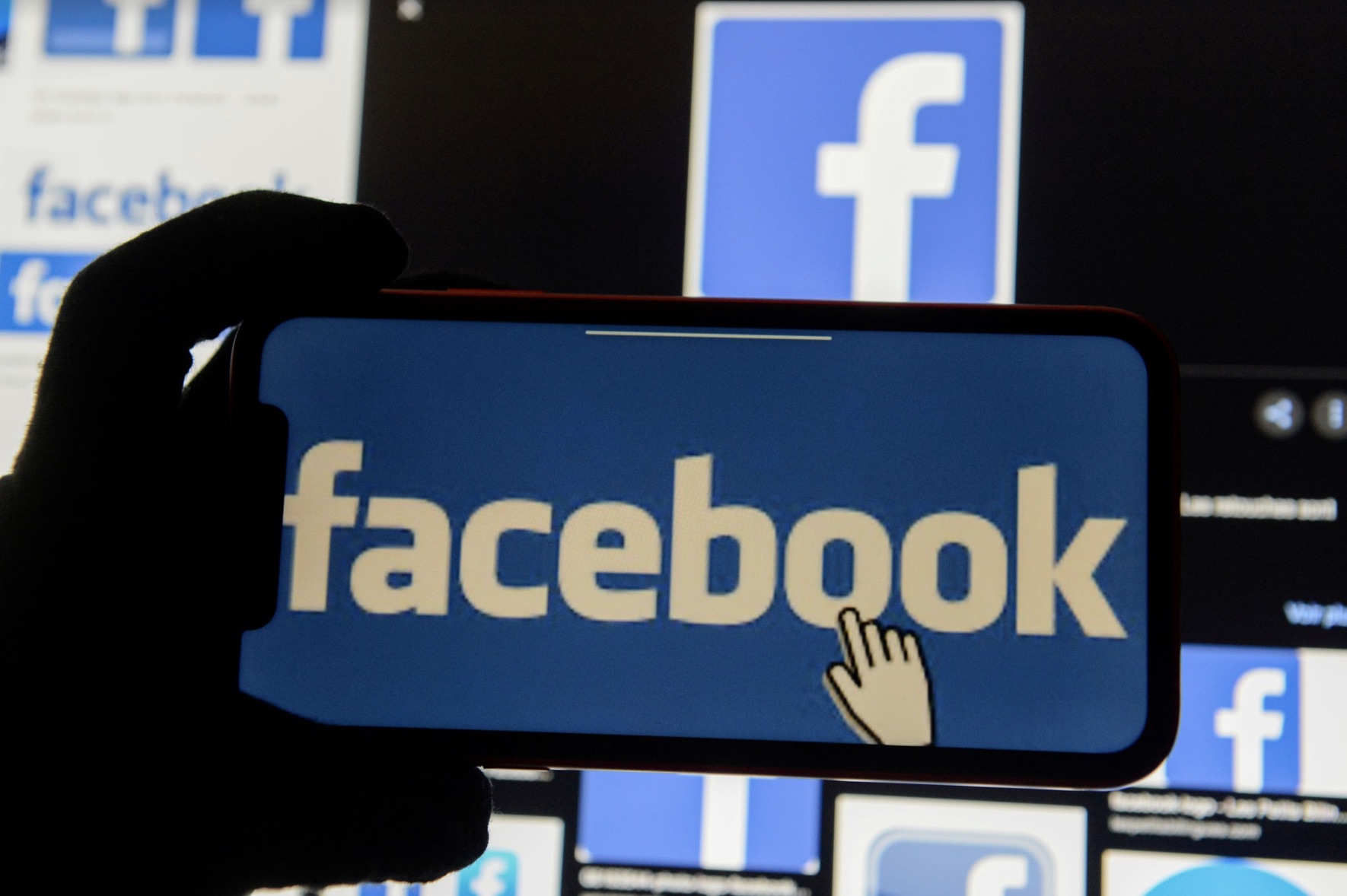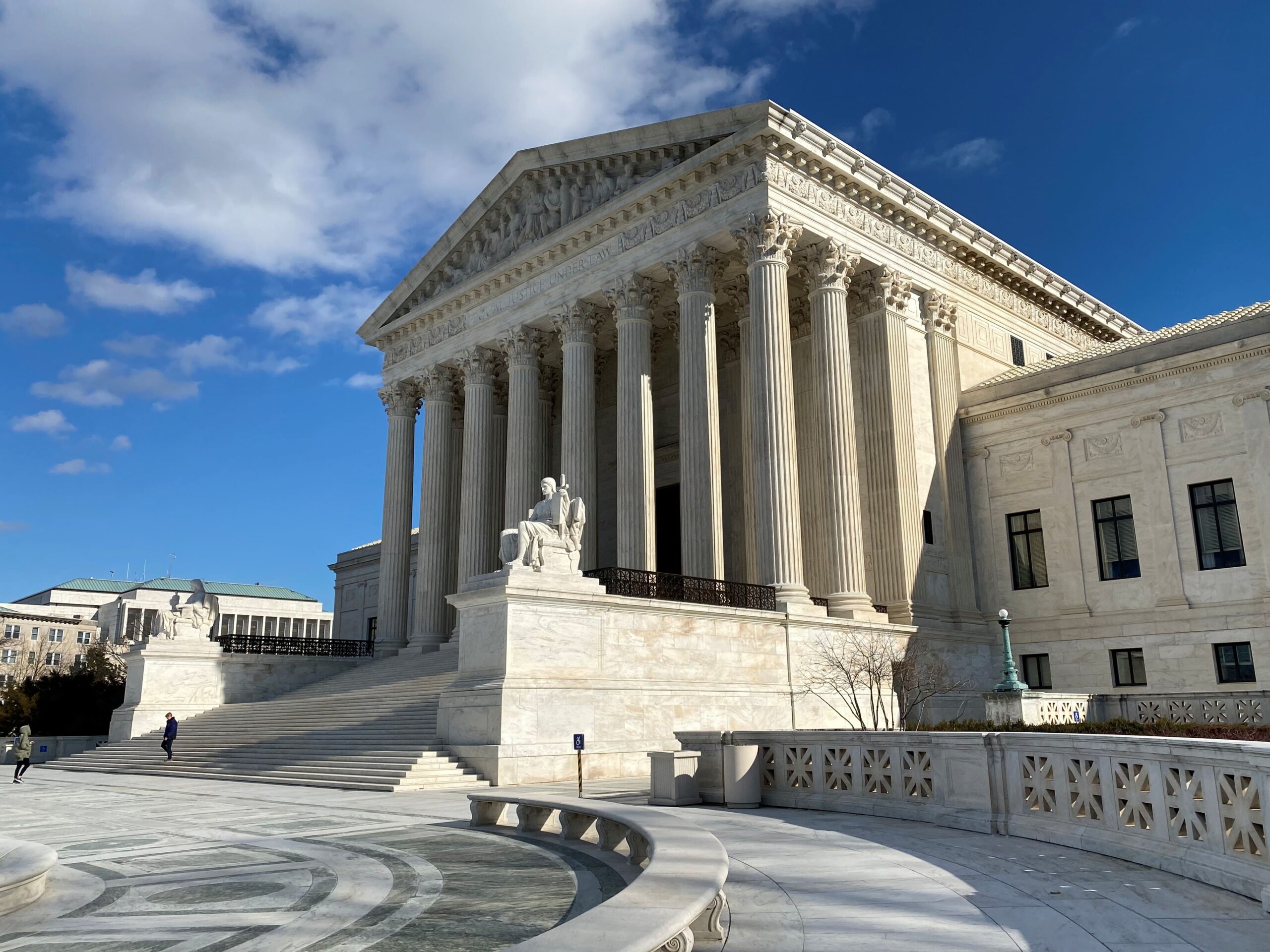FAW Deep Dive on Elected Officials and Social Media
Update: On 11/5/2019 Alexandria Ocasio-Cortez unblocked Dov Hikind and publicly apologized for blocking the assemblyman from her Twitter account.
On July 10, 2019, New York assemblyman Dov Hikind and Republican congressional candidate Joseph Saladino filed separate lawsuits against Rep. Alexandria Ocasio-Cortez for blocking them on Twitter.
The lawsuits were filed soon after the U.S. Court of Appeals for the Second Circuit ruled that President Trump’s Twitter account, @realDonaldTrump, was a public forum, and as such, blocking critics was a violation of their First Amendment rights.
See also: Can Elected Officials Block Critics on Their Social Media Pages?
Both Hikind and Saladino hope that Ocasio-Cortez will be held to the same standard.
Hikind, who founded Americans Against Anti-Semitism, alleges that Ocasio-Cortez blocked him after he criticized her use of the term “concentration camps” to refer to the federal government’s detention facilities that hold migrant children.
“No one is above the law.” Hikind tweeted on Tuesday, July 9. “If the courts ruled POTUS can’t block people on Twitter, why would @AOC think she can get away with silencing her critics?”
Saladino was also blocked from the congresswoman’s account after “responding to one of her political posts.”
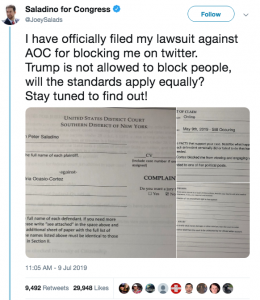
As with Knight First Amendment Institute v. Trump, which centered on the President’s personal account @realDonaldTrump and not on his official account, @POTUS, the lawsuits against Ocasio-Cortez refer to her personal Twitter account, @AOC.
“AOC regularly posts political messages of both a public nature,” Hikind said in the complaint. “Defendants [sic] twitter page was active with over 17 tweets and re-tweets between July 8, 2019 and July 9, 2019 alone. Each of these tweets involves a public interest and matters of official capacity, such as immigration, climate change, public housing, among other topics.”
In the court’s decision in the Trump Twitter case, Circuit Judge Barrington D. Parker noted that “not every social media account operated by a public official is a government account” and that the outcome of future decisions will be “informed by how the official describes and uses the account; to whom features of the account are made available; and how others, including government officials and agencies, regard and treat the account.”
On August 7, 2019, Ocasio-Cortez filed a response to Hikind’s complaint. She denied that her Twitter account @AOC is a public forum, that the account was used to make official announcements, and that her decision to block Hikind was driven by the content of his speech.
In a separate letter to Judge Frederic Block of the United States District Court for the Eastern District of New York on August 14, Ocasio-Cortez’s lawyers argued that the evidence used to prove that @realDonaldTrump was a public forum does not apply to @AOC. They argued that the president himself characterized @realDonaldTrump as an official account, had hired government employees to manage the account, and used the account to announce major policy initiatives. Ocasio-Cortez, they maintain, has not done any of the aforementioned activities.
“The facts in this case are significantly distinct from those in Knight,” the letter reads. “Ms. Ocasio-Cortez expressly denies that she uses the @AOC account for her public office or for official purposes.”
On August 28, 2019, the Knight First Amendment Institute sent a letter to Ocasio-Cortez asking her to stop blocking users from her @AOC account.
“Based on the facts as we understand them, the @AOC account is a ‘public forum’ within the meaning of the First Amendment. You use the account as an extension of your office–to share information about congressional hearings, to explain policy proposals, to advocate legislation, and to solicit public comment about issues related to government,” the letter says.
When Columbia University’s Twitter account tweeted about Knight’s letter, tagging @AOC in their post, the New York congresswoman responded quickly, arguing that her decision to block Hikind and others stemmed from “ongoing harassment.”
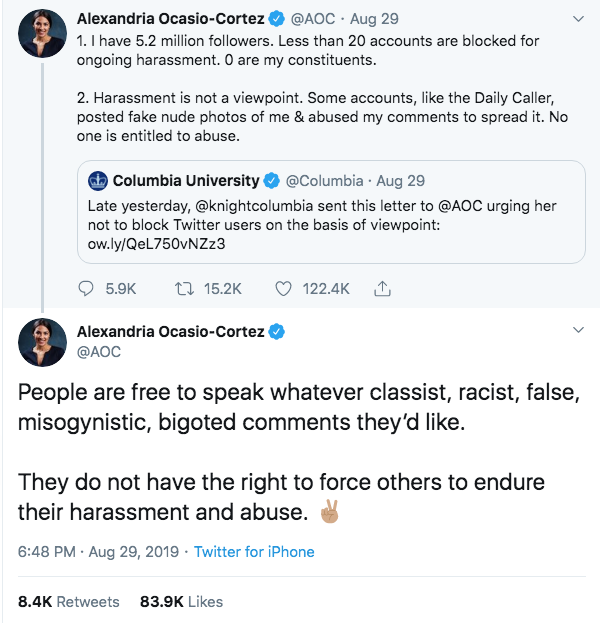
Screenshot of Alexandria Ocasio-Cortez’s Twitter response to Columbia University August 29, 2019.
Neither Ocasio-Cortez’s response to Hikind’s complaint nor her lawyer’s letter to the judge made clear how Hikind’s behavior constitutes harassment. Offensive speech is protected by the First Amendment, even when it involves insulting or disparaging speech. It is a very high bar for a plaintiff to prove that speech involves a true threat or the kind of pervasive attacks that might constitute harassment.
Ocasio-Cortez’s Twitter thread also did not address the Knight Institute’s claim that @AOC should be treated as a public forum, a point she has repeatedly dismissed.
In an earlier statement about the lawsuits filed against Ocasio-Cortez, the Knight Institute acknowledged the challenges posed by online abuse and harassment, but insisted that public officials address them while also complying with the First Amendment.
A pre-motion conference is scheduled for September 5.
This story has an update.
Hikind Complaint AOC’s Response to Hikind’s Complaint Knight’s Letter to AOC Politico Washington Post New York Daily News
Tags
